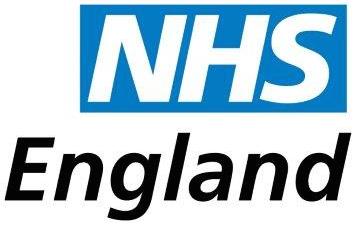NHS England set for primary care budget underspend of nearly £50m this year

NHS England is predicting it will underspend on primary care by almost £50 million in its final report before the end of the financial year.
Of the £8.65 billion it has budgeted to spend on general practice and other primary care services, only £8.6 billion is likely to be spent.
The news, which comes in the context of £220m added to GP funding last year, was revealed in board papers published today.
A table within the report reveals a £44.6 million underspend on ‘primary care and secondary dental’ between April and December, predicted to rise to £47.6m by the financial year end.
But it comes as overall, NHS England’s year to date budget is £61m overspent, and a record high number of CCGs expect to end the year in deficit.
GP leaders said in their understanding this funding was historically ‘used to offset overspend in other sectors’ but hoped with general practice’s current pressures it would be reinvested.
GPC commissioning lead and chief executive of Wessex LMCs Dr Nigel Watson told Pulse: ‘This “primary care” budget includes prescribing, IT, premises, and other things, so quite often there is slippage and they don’t over commit money.
‘When we’ve looked at CCG board report budgets, primary care is almost always zero or underspent, partly because of the budget being ring-fenced.’
But he added: ‘One would hope that, with past lack of investment in general practice and current challenges, that money would be recycled to investing into primary care to develop what we need to do instead of just being reported as underspend.’
NHS England’s finance report says that ‘the commissioning expenditure for the year includes a reserve for non-recurrent investment expenditure of 1% of allocations (ca. £800m), which is currently uncommitted but will be used as necessary to offset any overspends across the health system to ensure the delivery of overall financial balance’.
It comes as the RCGP warned in October that GP Forward View ambitions to stabilise general practice could be undermined if CCGs were allowed to use hundreds of millions earmarked for practices to plug hospital deficits.
RCGP analysis showed that £33m in funding earmarked for general practice was likely to go unspent this year by CCGs who had taken over delegated responsibility for commissioning general practice from NHS England.
And today’s report reveals a significant jump in the number of CCGs predicting a deficit.
At this point last year, only 30 CCGs predicted a deficit but the new finance update said: ‘There are 98 CCGs reporting year to date overspends, of which 60 are greater than 1%. There are 71 CCGs forecasting a year-end overspend, of which 27 are forecasting unplanned cumulative deficit positions.’
It also noted that some of the CCG deficit will be offset by underspends on quality premiums, funding for CCGs if their GP practices cut antibiotic prescribing and hit other targets.
The report said: ‘CCGs are currently forecasting an overall £404m (0.5%) overspend which is offset by a £34m forecast underspend on the quality premium.’
In previous years accountants have said that DH underspends have been returned to the Treasury to fill gaps elsewhere in the Government’s finances.
Last year, NHS England underspent the primary care budget by £163m, which accountants said was likely lost to the health budget.
And NHS England spokesperson said: ‘The board paper refers to wider primary care spend, which includes dentistry, opticians and other non-medical services, so is much broader than general practice services which are not expected to underspend.
‘What’s more, the GP contract is fully funded, and is demand-led so we would not anticipate any underspend on the GP contract this year.’
Pulse sought clarification but NHS England did not say what would happen to the underspend.
Visit Pulse Reference for details on 140 symptoms, including easily searchable symptoms and categories, offering you a free platform to check symptoms and receive potential diagnoses during consultations.









